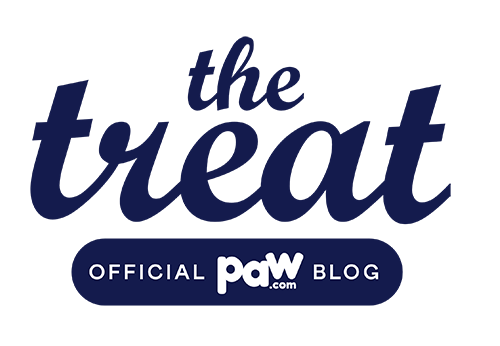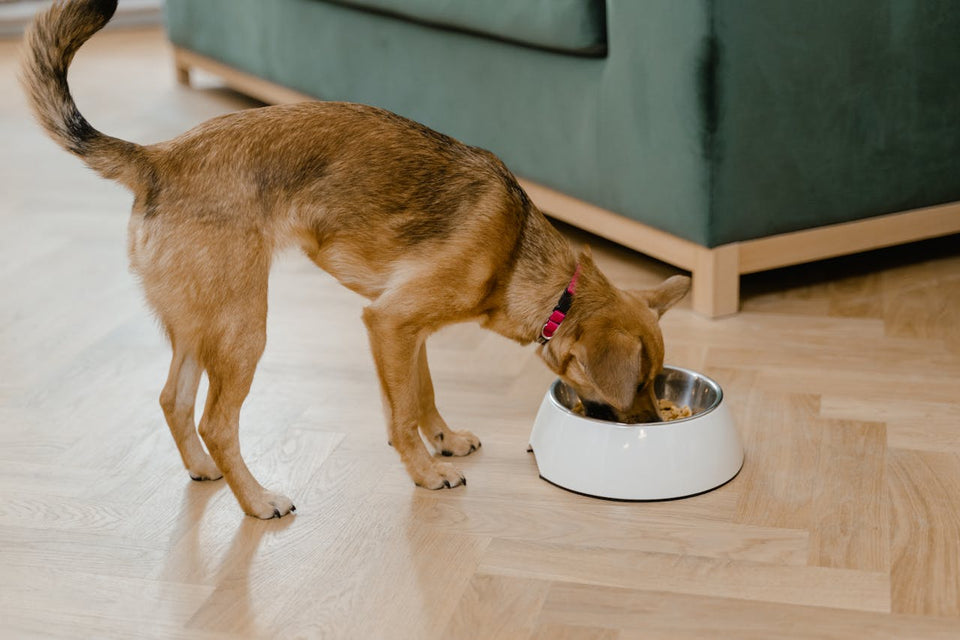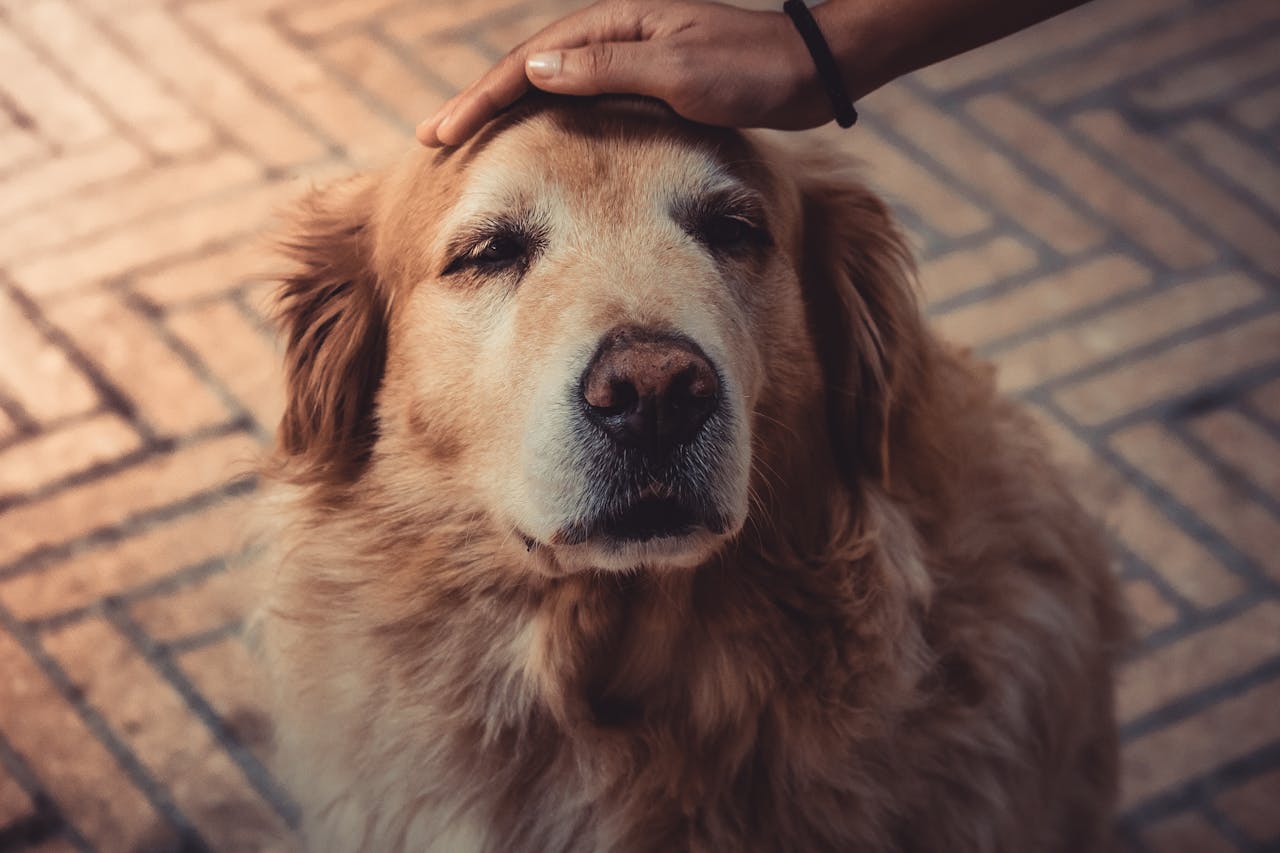
How to Help Your Dog Gain Weight

Helping your dog gain weight requires a combination of proper nutrition, exercise, and attention to health concerns. By understanding your dog's weight needs and implementing a tailored meal plan and exercise routine, you can help your furry friend achieve a healthy weight. It's important to consult with a veterinarian to address any underlying health issues and ensure a safe and effective weight gain journey for your dog.
Key Takeaways
- Assess your dog's current weight and determine the ideal weight for them.
- Choose high-calorie foods and balance macronutrients in your dog's diet.
- Incorporate the right type of exercise and monitor your dog's physical activity.
- Consult with a veterinarian to address any health concerns and identify underlying issues.
- Ensure proper medication and supplements are used for safe weight gain.
Understanding Your Dog's Weight Needs
Assessing Your Dog's Current Weight
Before you can help your dog gain weight, it's essential to assess their current weight. This isn't just about stepping on a scale; you need to determine your dog's Body Condition Score (BCS). The BCS is a hands-on assessment that helps you understand whether your dog is underweight, at an ideal weight, or overweight. Here's how to get started:
- First, look at your dog from above. An underweight dog will have a pronounced waist and you may see their ribs.
- Next, place your hands on their sides. If you can easily feel the ribs without pressing hard, your dog may be underweight.
- Finally, observe your dog from the side. An underweight dog will have a noticeable tuck-up near their hind legs.
Remember, based on your dog's current calorie intake and body condition score, you'll be able to make informed decisions about their diet and the steps needed to reach their ideal weight.
Determining the Ideal Weight for Your Dog
Determining the ideal weight for your dog is a crucial step in ensuring their health and well-being. Start by consulting with your veterinarian, who can provide a professional assessment based on breed, age, and overall health. Your vet may use a body condition score (BCS) to help gauge whether your dog is underweight, overweight, or at an ideal weight.
Consider the following factors when evaluating your dog's ideal weight:
- Breed-specific weight ranges
- Age and growth patterns
- Activity level and lifestyle
Remember, the goal is to achieve a weight that supports your dog's health without putting undue stress on their body. A gradual approach to weight gain is often safer and more sustainable than rapid changes. Keep in mind that maintaining an ideal weight is a balance; it's not just about the number on the scale but also about your dog's overall body composition and fitness.
Factors Affecting Your Dog's Weight
Several elements play a crucial role in your dog's ability to maintain or gain weight. Understanding these factors is essential to creating a successful weight gain strategy. Here are some key aspects to consider:
- Breed: Each breed has its own range of healthy weights, influenced by their unique genetic makeup.
- Age: As dogs age, their metabolism can slow down, affecting their weight.
- Body shape: Just like humans, dogs have different body types that can influence how they carry weight.
It's important to recognize that a 'one-size-fits-all' approach does not work when it comes to your dog's nutrition and weight management. Paying attention to these factors will help you tailor a plan that suits your dog's specific needs.
Creating a Nutritious Meal Plan

Choosing High-Calorie Foods for Your Dog
When aiming to help your dog gain weight, selecting the right high-calorie foods is crucial. Look for foods that provide a dense source of calories while also ensuring they are nutritious and well-balanced. High-calorie dog foods often have a higher fat content, but it's important to choose those with healthy fats, like omega-3 fatty acids, which are beneficial for your dog's coat and skin health.
- Start by checking the calorie content per serving on the dog food label.
- Opt for foods with real meat as the first ingredient for a high-quality protein source.
- Include complex carbohydrates like sweet potatoes, which provide energy and are easy on your dog's digestive system.
Remember, the goal is not just to increase calorie intake, but to do so in a way that promotes healthy weight gain. Consult with your veterinarian to ensure the food you choose is appropriate for your dog's specific health needs and dietary restrictions.
Balancing Macronutrients in Your Dog's Diet
When aiming to help your dog gain weight, it's not just about increasing calories; balancing macronutrients is crucial. Macronutrients are the building blocks of your dog's diet and include proteins, fats, and carbohydrates. Each plays a unique role in supporting your dog's health and weight gain.
- Proteins are essential for muscle repair and growth. Look for high-quality protein sources like chicken, beef, or fish.
- Fats provide a concentrated source of energy and help with the absorption of certain vitamins. Healthy fats can be found in foods like salmon oil or flaxseed.
- Carbohydrates offer energy and should come from nutritious sources such as sweet potatoes or brown rice, rather than from fillers or grains that may lead to weight gain but not necessarily good health.
Remember, the goal is to increase your dog's weight healthily. Overfeeding fatty foods can lead to obesity and other health issues. Instead, focus on a balanced diet that meets your dog's caloric needs while providing the nutrients necessary for a healthy weight gain.
Meal Frequency and Portion Control
Determining the right balance between meal frequency and portion size is crucial for your dog's weight gain journey. Feeding your dog more often can stimulate their appetite and provide multiple opportunities to consume calories throughout the day. However, it's important to avoid overfeeding in a single sitting as it can lead to digestive issues and discomfort.
- Start by dividing your dog's daily caloric intake into smaller, more manageable meals.
- Gradually increase the portion size of each meal as your dog becomes accustomed to the new feeding schedule.
- Monitor your dog's weight and adjust meal sizes and frequency accordingly to ensure a healthy weight gain.
Remember, consistency is key. Establishing a regular feeding routine will help your dog understand when to expect food and can reduce anxiety around meal times. Always consult with your veterinarian to determine the appropriate amount to feed your dog based on their specific needs and health status.
Implementing Exercise and Activity
Choosing the Right Type of Exercise for Your Dog
When helping your dog gain weight, exercise remains a crucial component. It's not just about increasing food intake; the right exercise can help build muscle and improve overall health. Start by considering your dog's breed, age, and current fitness level. These factors will determine the intensity and type of exercise that is best suited for your dog.
- For small or brachycephalic breeds, short walks or light play sessions may be sufficient.
- Larger breeds might benefit from longer walks, hikes, or even swimming, which is gentle on the joints.
- Puppies and senior dogs require special consideration to avoid overexertion.
Remember, the goal is to support weight gain through muscle development, not to burn excessive calories.
Additionally, consider investing in an orthopedic dog bed to provide your pet with a comfortable place to rest after exercise. A good night's sleep on a supportive bed can aid in muscle recovery and overall well-being.
Incorporating Playtime and Mental Stimulation
Just like humans, dogs need more than just physical exercise; they need mental stimulation too. Incorporating playtime and mental stimulation into your dog's routine is essential for their overall well-being and can contribute to weight gain. Interactive toys, such as puzzle feeders, can keep your dog engaged and encourage them to eat more.
- Introduce a variety of toys to see which ones your dog prefers.
- Schedule regular play sessions throughout the day to keep your dog active and mentally stimulated.
- Consider training sessions as a form of mental exercise that can also strengthen your bond.
Remember, a happy dog is more likely to have a healthy appetite. By providing a stimulating environment and engaging activities, you're not only helping your dog gain weight but also enhancing their quality of life.
Don't forget to check out the latest in-home products that can aid in this process, including toys and accessories that promote active play and mental engagement.
Monitoring Your Dog's Physical Activity
Keeping track of your dog's physical activity is crucial when you're trying to help them gain weight in a healthy way. Regular monitoring ensures that your dog is staying active without overexertion, which can be counterproductive to weight gain. Here are a few tips to effectively monitor your dog's activity:
- Use a daily activity log to record the type and duration of exercise. This can help you notice patterns and make necessary adjustments to their routine.
- Consider investing in a pet health device that tracks activity levels. Products like Minitailz offer a way to keep all your dog's health information at your fingertips, including activity monitoring.
- Pay attention to your dog's behavior post-exercise. If they seem overly tired or reluctant to move, it may be time to scale back the intensity or duration of their workouts.
By staying attentive to your dog's activity, you can ensure they're getting the right amount of exercise to support healthy weight gain.
Addressing Health Concerns
Consulting with a Veterinarian
Before making any significant changes to your dog's diet or lifestyle, it's crucial to consult with a veterinarian. They can provide a professional assessment of your dog's health and determine the best approach for weight gain. Here are some steps to follow:
- Schedule a check-up to discuss your dog's weight concerns.
- Have your dog undergo a thorough physical examination.
- Ask about nutritional advice tailored to your dog's specific needs.
- Inquire about any potential health issues that could be affecting your dog's weight.
Remember, a veterinarian can also guide you on the appropriate use of supplements and medications that may aid in healthy weight gain. It's important to avoid self-prescribing as it could lead to complications or mask underlying health issues.
You may also like: What to Feed your Dog, and What Not to Feed your Dog
Identifying Underlying Health Issues
Before you can effectively help your dog gain weight, it's crucial to identify any underlying health issues that may be contributing to their inability to maintain a healthy weight. Here are some steps to consider:
- Start by observing your dog for any signs of discomfort, changes in behavior, or symptoms that seem out of the ordinary. Common health problems in dogs include skin and coat issues, gastrointestinal disturbances, and dental problems, which can all affect their weight.
- Schedule a visit to the veterinarian for a thorough check-up. Be prepared to discuss your dog's eating habits, activity level, and any symptoms you've noticed. Gastrointestinal issues like colitis can significantly impact your dog's ability to absorb nutrients.
- Follow your vet's recommendations for diagnostic tests. These may include blood work, X-rays, or other procedures to rule out conditions such as fractured teeth or joint problems that could be causing pain and affecting your dog's appetite.
Addressing these health concerns is a vital step in ensuring your dog can gain weight safely and sustainably.
You may also like: 9 Reasons Why Dogs Eat Grass (and 9 Ways to Make Them Stop)
Medication and Supplements for Weight Gain
In some cases, your dog may require more than just a high-calorie diet to achieve a healthy weight. Medication and supplements can play a crucial role in your dog's weight gain journey. However, it's essential to approach this method under the guidance of a professional.
- Consult with your veterinarian to determine if your dog needs any specific supplements or medication.
- Ensure that any prescribed medication is given according to the vet's instructions to avoid any adverse effects.
- Supplements such as fish oil, probiotics, or digestive enzymes may be recommended to enhance your dog's ability to absorb and utilize nutrients.
Remember, while supplements can be beneficial, they should not replace a balanced diet. Always prioritize a nutritious meal plan and consider supplements as an additional support for your dog's health.
Bottom Line
In conclusion, helping your dog gain weight requires a combination of proper nutrition, regular exercise, and monitoring their progress. By following the tips and guidelines outlined in this article, you can ensure that your dog reaches a healthy weight and maintains it for optimal well-being. Remember to consult with your veterinarian for personalized advice and guidance tailored to your dog's specific needs.
Share this article
written by


